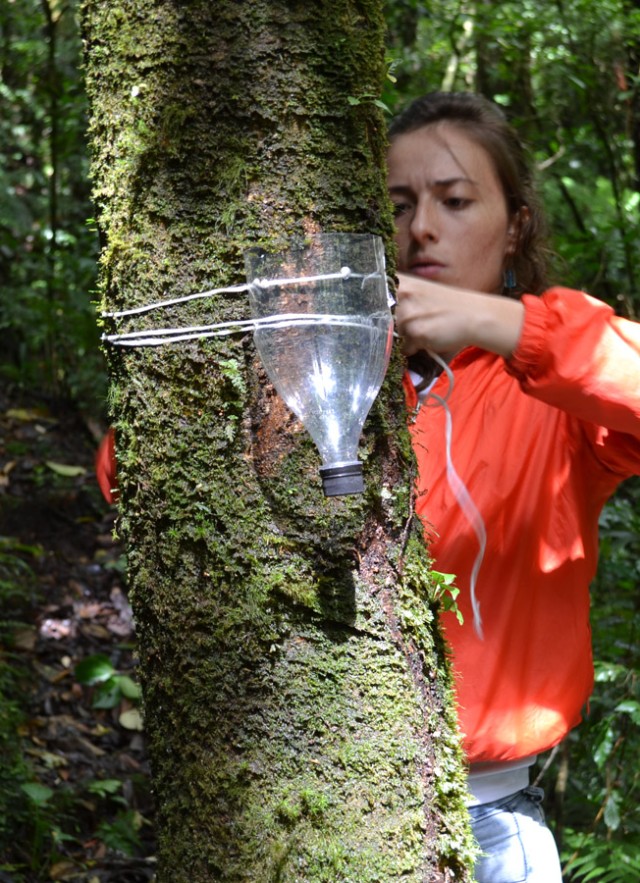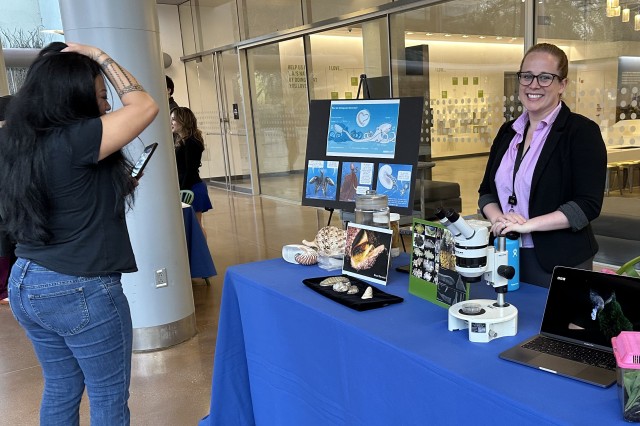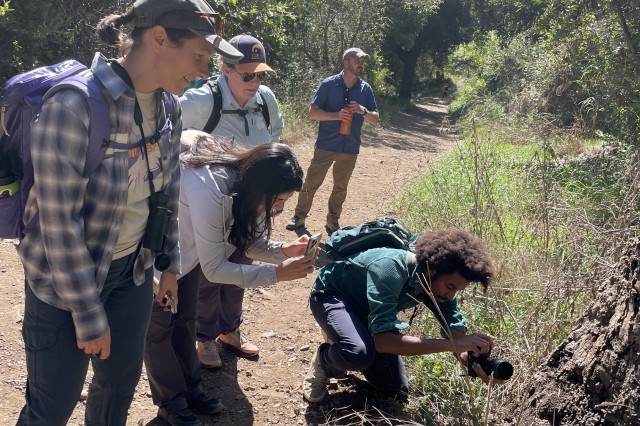
Understanding Nature and Los Angeles Biodiversity (UNLAB) through museum collections and field-based research is an apprenticeship-style post-baccalaureate training program based in the Research & Collections Department at the Natural History Museum of Los Angeles County (NHMLAC). Between 2023-2026, this program will host three cohorts of 8-12 mentees for a 1-year research and professional preparation program working with NHMLAC curators as mentors. UNLAB is funded through the National Science Foundation’s Research and Mentoring for Post-baccalaureates in Biological Sciences (RaMP) program.
“UNLAB” refers to the methodology employed by museum curators, where research happens in museum collections rather than in a traditional scientific lab. The UNLAB Program offers an intensive year as a full-time museum employee, conducting collections-based research that explores fossil or living species and the history of human impact on local biodiversity. Participants are paired with a museum curator and a co-mentor from another local institution, gather data for a research project in their focus area, reach conclusions based on those data, and summarize findings in a poster and oral presentation. Projects will focus largely on studying collections onsite at the museum. Participants will learn together in a variety of ways, including participating in a weekly Professional Development seminar series, weekly cohort meetings, and quarterly group day trips.
Participants will be full-time temporary, hourly employees with benefits, for a one year term (August 2025–July 2026). Work occurs at the Natural History Museum, with some projects involving travel to other collections facilities, research sites, museums, or field sites. Pay: $22/hour
UNLAB aims to train participants in biodiversity science, prepare them for research-based careers, explore opportunities for continued education, and enable them to:
LEARN:
- Collections- and field-based research methods, research project development, conference and symposium-style presentation
- Science communication and public engagement
- Weekly Professional Development seminars; example topics: R Studio, fellowship and graduate school application process, research presentation practice, interview skills, etc.
EXPERIENCE:
- Mentorship and networking opportunities
- Training in scientific research at a world-class museum
- Working with biodiversity scientists
- Exposure to museum and research-based careers
TAKE-AWAY:
- Career skills and personal growth
- Compensation for valuable professional contributions
- A research project communicated through a presentation and/or written manuscript
Applications for the 2025-2026 UNLAB Cohort are closed

